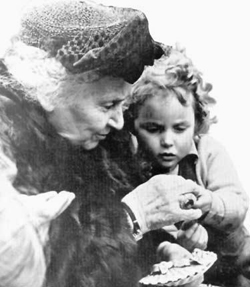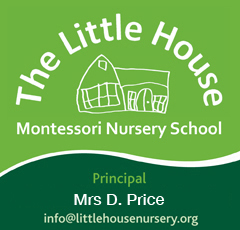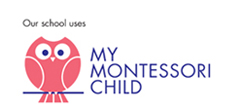Montessori Philosophy
Children have an innate drive to develop and learn
Montessori believed children are born with an understanding of what they need to do to develop and learn. There are two key ways in which Montessorians capitalise on this inherent quality, therefore helping every child to fulfil their potential. Firstly, by providing children with carefully chosen resources and experiences which capture their imagination and promote their learning and development. Secondly, by providing children the freedom to explore their environment, spending as long as they like on an activity gradually perfecting their skills and developing concentration.
Children pass through Sensitive Periods
Through her observations of children’s behaviour, Montessori discovered there were certain periods of particular sensitivity that were generic in all children. It is when a child is moving through a sensitive period that they learn that aspect of development with ease. An example of this is acquiring language, children who are brought up bi-lingual will learn their second language with ease, adults attempting to learn a second language need to apply far more effort and practise.
Children learn through their senses and being active
Montessori saw that children used all their senses to explore their environment and understand their experiences. She developed materials that refined each of the five senses, taking care to produce high quality equipment which are even now reproduced using natural materials closely following Montessori’s own designs. Montessori understood that children learn through movement, all our activities require children to do – not listen!
Children thrive on order and structure
Order and structure provide consistency and predictability for children, essential for their sense of wellbeing and security. Montessori classrooms have a place for everything with every activity kept on a particular shelf at child height, so it is always readily accessible to them. The class follow consistent routines which help the children to understand the structure of the day and predict certain events such as home time.
For more information on Montessori philosophy click here
|









